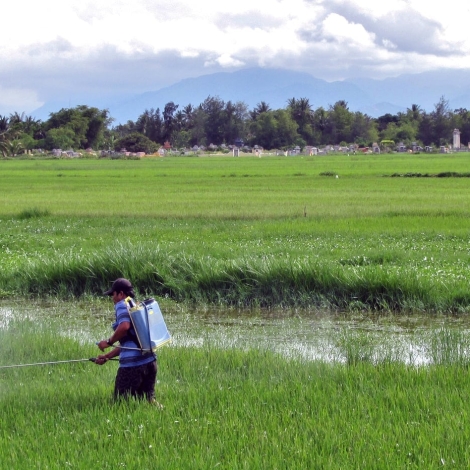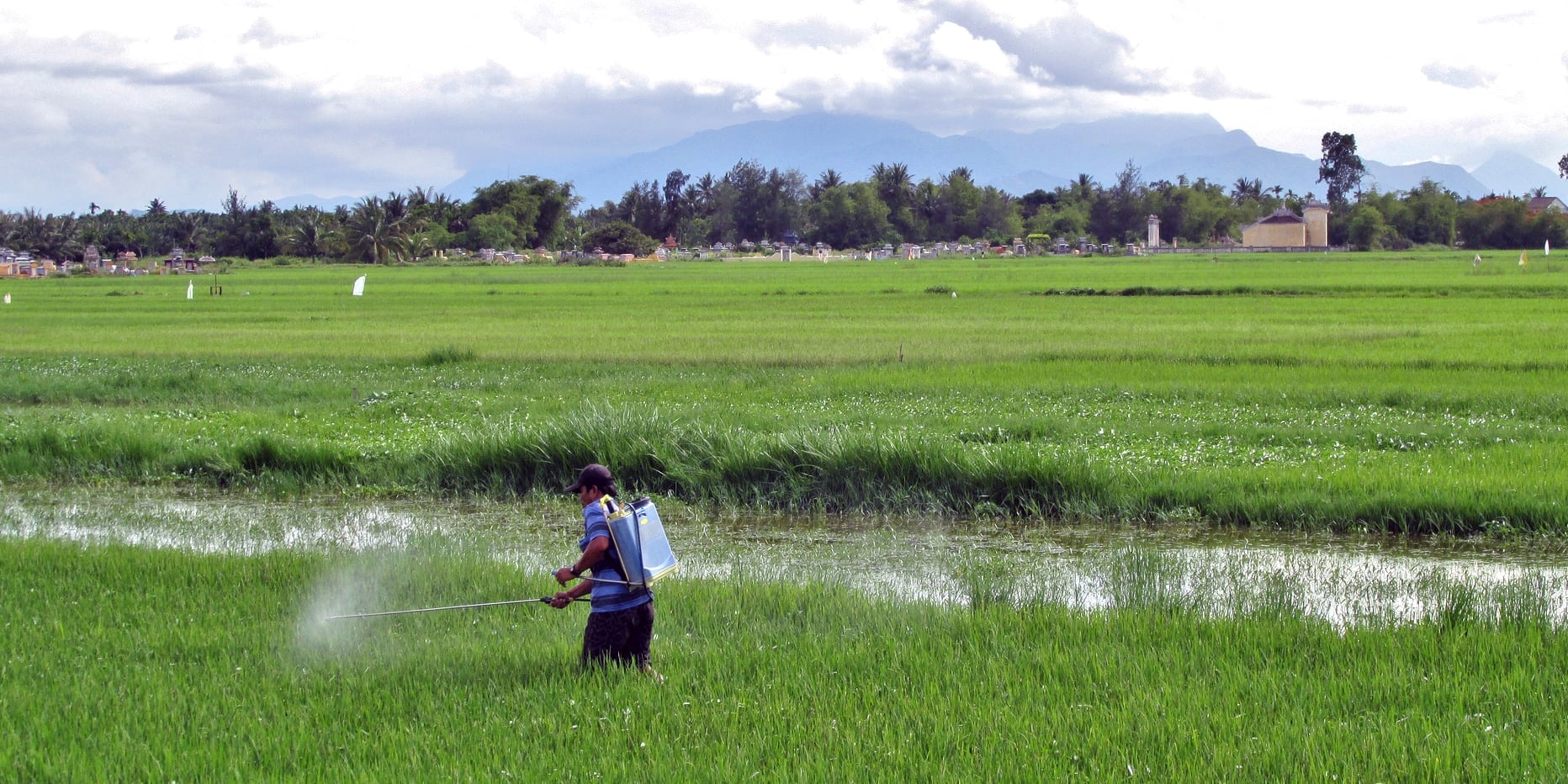In a departure from the WASH community’s traditional focus on microbial contamination in drinking water, the new WASH-Toxics Working Group takes aim at chemical pollutants.
A stop inside a farm supply store in a developing country can put the lack of agrochemical regulation on stark display. A team from Aqueous Solutions, a US clean water research and education non-profit, documented a visit to a shop near Paukkhaung, Myanmar, this year, and found 13 chemicals that are banned in at least one country, and four that are banned in 35 or more countries.
There is a good reason why a water research organization is concerned about pesticides: agricultural chemicals are likely leaching into drinking water supplies. But, in developing countries especially, there is little research into how bad the problem might be. There may be as many as 2.4 million tons of pesticide ingredients used worldwide each year, but 90 percent of the world’s farmland does not undergo testing for pesticides in the surface water. That amounts to a troubling blind spot in public health risk.
The global development community has focused most of its efforts on removing microbial contaminants from drinking water. Chemicals have often been overlooked, in large part because waterborne microbes cause disease that can maim and kill quickly. Diarrhea is a leading killer of children under the age of five in developing countries, and waterborne illness takes a toll in work and school days skipped and lives cut short. But chemicals can present a threat on different terms than microbes. They can cause immediate harm through poisoning, but they can also do long-term damage, affecting the endocrine system, causing cancer and other complications.
Now a new effort is underway to address the problem of chemical pollutants. The WASH-Toxics Working Group came about through a symposium at the UNC Water and Health Conference.
“This is an interdisciplinary initiative advancing innovative, affordable, and sustainable technologies to control toxic chemicals and supply safe water to resource constrained and developing communities,” says Josh Kearns, Director of Science at Aqueous Solutions, which is instrumental in the work.
Kearns, a Contributing Editor at E4C, has been investigating the risk that chemicals pose in developing countries and low-cost means of removing them from drinking water. He has developed a large-scale biochar water filter (An Ancient Filtration Material Removes Pesticides from Drinking Water) and he has called on the Water, Sanitation and Hygiene community to invent new ways to purify water that has been contaminated with runoff from farms and factories (Innovation Needed Now to Control Persistent Organic Chemical Toxins in Drinking Water in Developing Countries). Now a global network of experts is uniting to take on the challenge.
“Microbial hazards in drinking water typically cause well-known and acute adverse and life-threatening health effects, and as a result have historically been the priority in both WASH and food safety communities. The WASH-Toxics Working Group was established at the UNC Water and Health Conference this year to highlight the importance of also evaluating and addressing chemical hazards in drinking water globally, which can cause chronic non-cancer health problems and cancer in the general population, children, pregnant and lactating women, and the elderly,” says Jennifer Redmon, Environmental Health Scientist at RTI International, a US research non-profit.
This year, the group may begin with identifying what the WASH community needs before it can address the problem of chemical hazards. And the group may be seeking ideas for short-term solutions to improve the world’s drinking water while longer-term solutions are in development, Redmon says.
Help is welcome and the group is open to new members. Please visit the WASH-Toxics Working Group’s Web page for details.


Thank you.